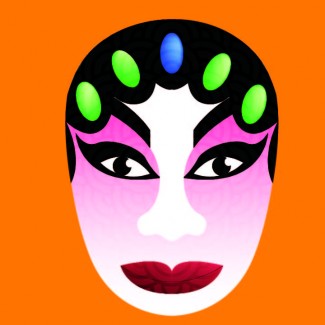A rarely seen form of Chinese entertainment is making an appearance at the University of Idaho, thanks to the efforts of UI’s Confucius Institute.
Providing a mash-up of different genres and popular Chinese culture, the Binghamton Chinese Opera hopes to attract many to its one-night performance.

Aly Soto | Rawr
Chinese opera is considered a national treasure of China, with a long history going back to the Tang Dynasty. While mostly a form of entertainment for the cultured and educated, it is considered rare to grow up in China without any exposure to it.
“The opera presents the audience with an encyclopedia of Chinese culture,” said Hexian Xue, from the UI Confucius Institute.
Bringing the opera here, she and Matthew Wappett, also from the UI Confucius Institute, hope it will help them fulfill one of institute’s goals: to further community understanding of Chinese culture.
A Chinese opera performance consists of a combination of Chinese focused music, both instrumental and vocal, dancing, acting, acrobatics, martial arts, makeup and costumes. The audience can observe a different way of dramatic story telling that shares similarities in both look and technique with other forms of traditional Asian entertainment.
“Chinese opera, style wise, is a little bit different then what Americans are used to,” Wappett said.
Two telling differences between American and Chinese style of opera are the number of musicians in a performance — which is significantly smaller — and the style of makeup, which helps tell the audience what kind of character the actor is playing.
“One of the most visible aspects of Chinese opera that people associate with it is the makeup. There are certain markings, symbols and patterns that are on a face that distinguish a character in that particular opera,” Wappett said.
Performers train long and hard, having to master several forms of performing arts. One popular saying about Chinese Opera is: “One minute on stage takes 10 years of practice.”
William Chunnuan Liu, a guest Beijing opera performer at Binghamton University, agrees with this statement.
“People start training at 6 to 8 years old,” Liu said. “You have to go to a special school.”
Liu believes performances of Chinese opera in the U.S. will benefit those who are trying to learn more about the country it originated from.
“It is a cool way to know Chinese people and Chinese culture,” Liu said.
The other reason the UI Confucius Institute is bringing the Binghamton Opera troupe here is to celebrate a special achievement.
“The performance of the Binghamton group coincides with the 10th anniversary of the founding of the Confucius Institute world-wide,” Wappett said.
With more than 300 institutes established since the program’s founding, students and communities all over the world have gained more access to the culture, language and interaction with China.
The Binghamton Chinese Opera will perform three excerpts from the following: “Farewell My Concubine,” a tragedy, “The Crossroads Inn,” an instance of mistaken identity and “Uproar in Heaven,” a tale of a dispute. The performance will be 7 p.m. Sept. 20 at the Administration Building. Tickets are $8 and are sold first come first served at the Confucius Institute office.
Aly Soto can be reached at [email protected]